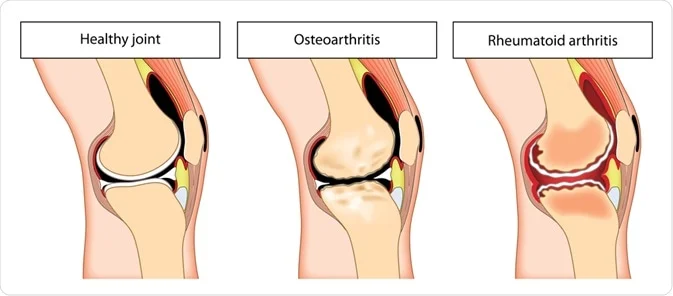Comprehensive Arthritis Management through Physiotherapy: A Holistic Approach to Healing
Arthritis, a common yet debilitating condition, encompasses a range of disorders such as Rheumatoid Arthritis (R.A.) and Osteoarthritis (O.A.). These conditions can significantly impact one's quality of life, causing pain, stiffness, and reduced mobility. While medical interventions play a crucial role in managing arthritis, physiotherapy has emerged as a vital component of comprehensive treatment plans. This article explores the benefits of physiotherapy in the treatment of arthritis, shedding light on its positive impact on both Rheumatoid Arthritis and Osteoarthritis.

1.I. Understanding Arthritis:
Arthritis is a chronic inflammatory condition that affects the joints, leading to pain, swelling, and stiffness. Rheumatoid Arthritis (R.A.) involves an autoimmune response, where the immune system mistakenly attacks the joints. On the other hand, Osteoarthritis (O.A.) is characterized by the breakdown of joint cartilage and underlying bone, often associated with aging and wear-and-tear.
2.Physiotherapy Techniques and Modalities:
1.II. The Role of Physiotherapy:
Physiotherapy is a non-invasive, drug-free approach that focuses on improving joint function, reducing pain, and enhancing overall mobility. This specialized form of treatment can be tailored to address the unique needs of individuals with arthritis, offering targeted exercises and interventions.
2.a. Joint Mobilization and Range of Motion Exercises:
Physiotherapists employ joint mobilization techniques to enhance joint flexibility and reduce stiffness. Range of motion exercises play a crucial role in maintaining and improving the mobility of affected joints, preventing further deterioration.
3.b. Strengthening Exercises:
Arthritis often weakens the muscles around affected joints. Physiotherapists design customized strengthening exercises to target specific muscle groups, providing support to joints and improving overall stability.
4.c. Pain Management Strategies:
Physiotherapy includes various pain management techniques, such as hot/cold therapy, ultrasound, and transcutaneous electrical nerve stimulation (TENS). These modalities aim to alleviate pain and enhance the effectiveness of other therapeutic interventions.
5.d. Education and Lifestyle Modification:
Physiotherapists educate individuals about arthritis management strategies, including joint protection techniques and ergonomic modifications. Lifestyle recommendations, such as maintaining a healthy weight and engaging in regular physical activity, are emphasized to promote long-term joint health.
6.III. Patient-Centered Approach:
Physiotherapy adopts a patient-centered approach, recognizing the unique challenges and goals of each individual. By working closely with patients, physiotherapists create personalized treatment plans that align with their specific needs and preferences.
3.Conclusion:
In the holistic management of arthritis, physiotherapy plays a pivotal role in improving joint function, reducing pain, and enhancing overall well-being. This non-invasive approach empowers individuals with arthritis to actively participate in their treatment, promoting a healthier and more active lifestyle. If you or a loved one is grappling with arthritis, consider the transformative benefits of physiotherapy as an integral component of your comprehensive treatment plan.
